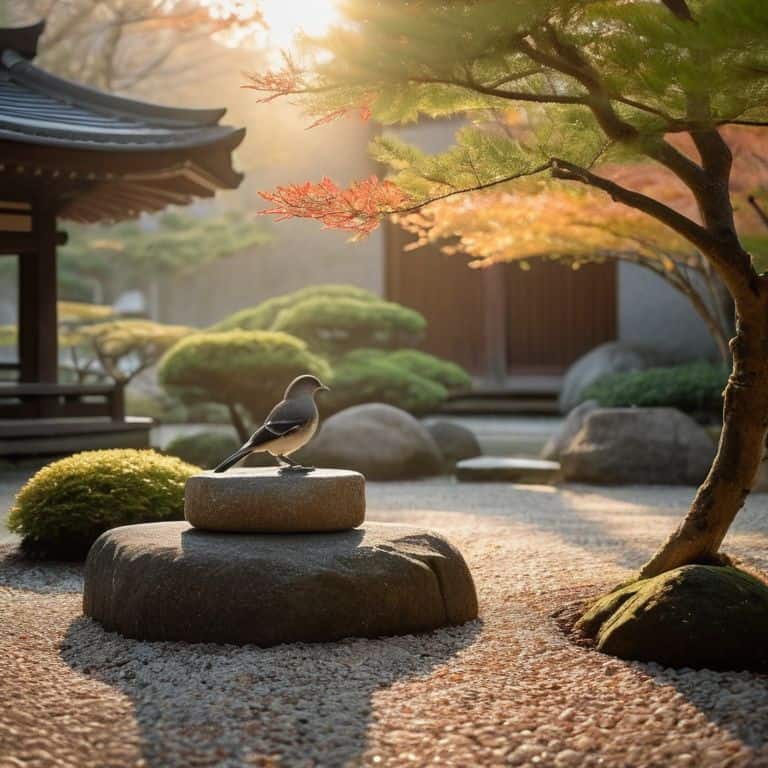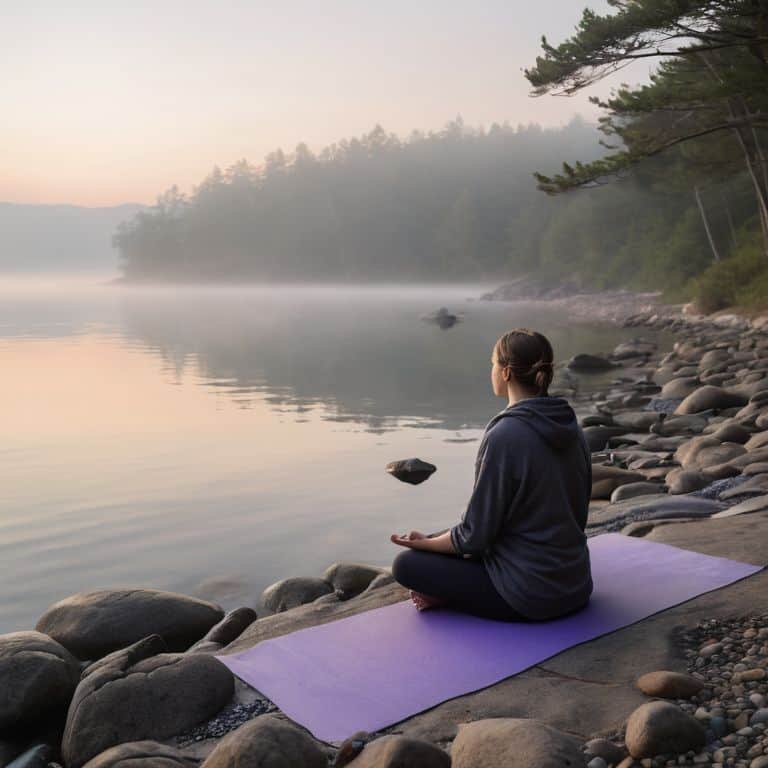I still remember the day I realized that natural ways to calm anxiety didn’t have to be complicated or expensive. I was working with a client who had tried every trendy remedy under the sun, from essential oils to meditation apps, but still felt overwhelmed. As we sat in my garden, surrounded by the soothing sounds of nature, I asked her to take a few deep breaths and simply be present. It was a turning point for her, and it reminded me that sometimes the most effective solutions are the simplest ones.
In this article, I promise to cut through the hype and offer you practical, evidence-based advice on how to calm your anxiety using natural methods. I’ll share my own experiences, as well as those of my clients, to provide you with a clear understanding of what works and what doesn’t. My goal is to empower you with the knowledge and tools you need to take control of your anxiety, and to find peace in the chaos. I believe that everyone deserves to feel calm and centered, and I’m committed to helping you get there, one small step at a time.
Table of Contents
Natural Ways to Calm Anxiety

As I sit in my Japanese rock garden, surrounded by the soothing sounds of nature, I’m reminded of the calming essential oils for anxiety that can be used to promote relaxation. The gentle aroma of lavender, for example, can have a profound impact on our mental state, calming the mind and body. I’ve found that incorporating these oils into my daily routine, whether through diffusion or topical application, can be a simple yet effective way to reduce anxiety.
When it comes to holistic approaches to stress, I believe that yoga can be a powerful tool. The combination of physical movement and mindful breathing can help to calm the nervous system, reducing feelings of anxiety and promoting a sense of calm. I often recommend that my clients try progressive muscle relaxation for anxiety, as it can be done anywhere, at any time, and requires no special equipment. By releasing physical tension, we can begin to quiet the mind and find a sense of peace.
In my experience, small changes can add up to make a big difference. Dietary changes for anxiety reduction, for example, can be as simple as incorporating more omega-rich foods or staying hydrated. By making these small adjustments, we can begin to feel more grounded and centered, better equipped to handle life’s challenges. Whether it’s a short walk or a few deep breaths, I encourage my clients to find what works for them and make it a regular part of their self-care routine.
Calming Essential Oils for Inner Peace
As I sit in my garden, surrounded by the soothing sounds of nature, I find that calming essential oils can be a powerful tool in reducing anxiety. The scent of lavender, in particular, has a profound effect on my mind and body, promoting a sense of relaxation and tranquility.
I’ve found that incorporating gentle aromatherapy into my daily routine can be incredibly beneficial. A few drops of chamomile or bergamot in a diffuser can create a peaceful atmosphere, allowing me to unwind and calm my mind after a long day of walking or painting.
Holistic Approaches to Soothe the Mind
As I sit in my Japanese rock garden, I’m reminded of the power of holistic approaches to calm the mind. The gentle ripples on the water, the soft chirping of birds, and the warmth of the sun on my skin all blend together to create a sense of serenity. This is what I aim to help you achieve – a state of inner peace that permeates every aspect of your life.
In my experience, mindfulness practices can be particularly effective in soothing an anxious heart. By focusing on the present moment, we can let go of worries about the past or future, and simply be. Whether it’s through meditation, deep breathing, or a quiet walk, mindfulness helps us tune into our inner calm, and find peace in the midst of chaos.
Finding Serenity in Everyday Life

As I often find solace in my Japanese rock garden, I’ve come to realize that serenity can be found in the simplest of things. The gentle rustle of leaves, the soft chirping of birds, and the warmth of the sun on my skin all contribute to a sense of calm. Similarly, in our daily lives, we can find peace by adopting holistic approaches to stress that bring us closer to nature. Taking a short walk, practicing yoga for anxiety relief, or simply sitting in a park can work wonders for our mental well-being.
Incorporating calming essential oils for anxiety into our daily routine can also be incredibly beneficial. The scent of lavender, for instance, has a profound impact on our nervous system, promoting relaxation and reducing anxiety. By using these oils in a diffuser or applying them topically, we can create a sense of calm that stays with us throughout the day. As I always say, a 10-minute walk can solve most problems, and adding a few drops of calming essential oils to our routine can make all the difference.
By making small dietary changes for anxiety reduction, such as increasing our intake of omega-3 rich foods or avoiding sugary snacks, we can also promote a sense of calm from within. Additionally, practices like progressive muscle relaxation for anxiety can help us release physical tension and find peace in the present moment. As we explore these anxiety reduction techniques, we begin to realize that serenity is not something we find, but rather something we cultivate, one gentle step at a time.
Dietary Changes for a Calmer You
As I often find solace in the simplicity of nature, I’ve come to realize that nourishing our bodies with the right foods can have a profound impact on our mental well-being. A diet rich in whole foods, such as fruits, vegetables, and whole grains, can help reduce anxiety symptoms.
Incorporating omega-3 fatty acids into our diet, found in foods like salmon and walnuts, can also have a calming effect on the mind and body. By making these simple dietary changes, we can take a gentle step towards a more peaceful life.
Yoga and Progressive Muscle Relaxation Techniques
As I often find myself reminding my clients, gentle movements can be incredibly powerful in calming the mind and body. Yoga, in particular, offers a beautiful blend of physical postures, breathing techniques, and meditation to promote relaxation and reduce anxiety. By incorporating yoga into your daily routine, you can begin to notice a sense of calm and clarity that stays with you throughout the day.
I’ve seen many people benefit from progressive muscle relaxation, which involves systematically tensing and relaxing different muscle groups to release physical tension. This technique can be practiced anywhere, at any time, and is especially helpful in moments of high anxiety, allowing you to regain a sense of control and calm.
Embracing Tranquility: 5 Gentle Tips to Calm the Anxious Mind
- Take a Morning Walk: Starting your day with a 10-minute walk can help set a calm tone, allowing you to breathe in fresh air and listen to the sounds of nature
- Practice Mindful Watercolor Painting: The gentle flow of water and color on paper can be meditative, helping to quiet the mind and foster a sense of inner peace
- Create a Serene Garden Sanctuary: Tending to a Japanese rock garden or any peaceful outdoor space can teach patience and mindfulness, offering a calming escape from daily worries
- Use Nature’s Lullaby: Listen to the sounds of rain or ocean waves to create a soothing atmosphere, helping to calm the mind and reduce anxiety
- Write Down Your Thoughts: Journaling before bed can help process your emotions and clear your mind, allowing for a more restful sleep and a calmer tomorrow
Embracing Calm: Key Takeaways
By incorporating holistic approaches such as meditation, deep breathing, and mindfulness, you can significantly reduce anxiety and find a deeper sense of peace in your daily life
Nature has a profound impact on our mental well-being; spending time outdoors, whether walking or simply sitting in a garden, can calm the mind and soothe the heart
Small, consistent changes to your routine, such as practicing yoga, using calming essential oils, or making dietary adjustments, can have a profound impact on your ability to manage anxiety and find serenity in everyday life
A Gentle Reminder
Just as a river flows smoothly when it follows its natural course, our minds find peace when we surrender to the present moment and let go of the currents of worry and fear.
Dr. Samuel Cole
Embracing Peace: A Journey, Not a Destination

As we’ve explored the various natural ways to calm anxiety, it’s clear that finding peace is a personal and ongoing journey. From holistic approaches like essential oils and yoga, to simple yet profound practices such as taking a few deep breaths or going for a walk, every step counts. The key is to find what resonates with you and make it a part of your daily life, allowing you to gradually build a sense of calm and well-being. It’s about embracing the small moments of serenity and using them as a foundation to face life’s challenges with a clearer mind and a more peaceful heart.
In the end, it’s not about achieving a state of absolute calm, but about learning to navigate life’s storms with grace and resilience. As you continue on your path, remember that every small step towards peace is a victory, and that the journey itself is where the true healing and growth occur. May you find solace in the simple things, and may your heart remain open to the beauty and wonder that surrounds us all, guiding you towards a more serene and fulfilling life.
Frequently Asked Questions
Can spending time in nature, like walking or hiking, really help reduce anxiety symptoms?
I’ve found that spending time in nature can be incredibly calming. Taking a walk or hike allows us to step away from stressors and reconnect with the world around us, quieting the mind and soothing the body. Even a short 10-minute walk can make a significant difference in reducing anxiety symptoms and promoting a sense of peace.
How often should I practice yoga or meditation to see a noticeable difference in my anxiety levels?
Consistency is key when it comes to yoga and meditation. I recommend starting with just 10-15 minutes a day, ideally at the same time each day, to help calm your mind and body. As you establish a routine, you can gradually increase the duration. Even a short daily walk can help, but aim for at least 3-4 dedicated practice sessions a week to notice a difference in your anxiety levels.
Are there any specific dietary supplements, such as omega-3 or vitamin D, that can help alleviate anxiety symptoms?
While I always recommend consulting a healthcare professional, certain supplements like omega-3 and vitamin D have shown promise in easing anxiety symptoms. Omega-3 fatty acids, found in fish oil, support brain health, and vitamin D deficiency has been linked to increased anxiety. A balanced diet and proper guidance are key to using these supplements effectively.
